Siding with the immune system
Institutional Communication Service
In autumn 2021 a new Centre for biomedical reseach will be inaugurated in Bellinzona. To support this event, Ticino Management features a special series of articles presenting the activities of the two main residents of the facility, IRB and IOR. In this article eight group leaders at the IRB tell us more about what they do in their respective research labs.
[courtesy of Ticino Management, June 2021 issue]
Lymphocytes, vaccines, antibodies, immunological memory. Even in the wake of the coronavirus, the common vocabulary has been expanded with terms that have their origin in immunology, the science that studies the immune system: fundamental for the body's defence against viruses and bacteria, but also for controlling inflammatory and autoimmune diseases, allergic reactions and tumour cells. At the forefront of basic research is the Institute for Research in Biomedicine in Bellinzona, an institute affiliated to USI.
The immune system could be described as our body's 'army', made up of cells (soldiers) with different functions, such as those that patrol the body for viruses and bacteria (enemies). Some of them are able to produce powerful 'weapons', such as antibodies that neutralise pathogens. Even before the pandemic, the study of the immune response to infectious diseases was a key research area for the IRB in Bellinzona: influenza, ebola, malaria, to name but a few. Discoveries in this area have also led to the creation of a spin-off, Humabs Biomed, also located in Bellinzona. "But immunology is much more than the response to viruses and bacteria. The immune system is crucial in allergic reactions and in important pathologies such as inflammatory and autoimmune diseases, which are also being studied at the IRB. Another emerging topic is the immune system's ability to recognise and destroy tumour cells, an aspect that is also being studied at the Institute of Oncology Research (IOR, affiliated to USI). In short, immunology permeates many areas of biomedicine and is a discipline with considerable potential for the development of new medicines", says Davide Robbiani, director of the IRB.
In the feature article by Susanna Cattaneo the comments of the following IRB group leaders:
- Davide Robbiani, Immunology and Infectious Disease
- Federica Sallusto, Cellular Immunology
- Luca Varani, Structural Biology
- Santiago F. González, Infection and Immunity
- Maurizio Molinari, Protein Folding and Quality Control
- Marcus Thelen, Signal Transduction
- Silvia Monticelli, Molecular Immunology
- Greta Guarda, Immune Mechanisms
See attached Pdf for full article (in Italian).




